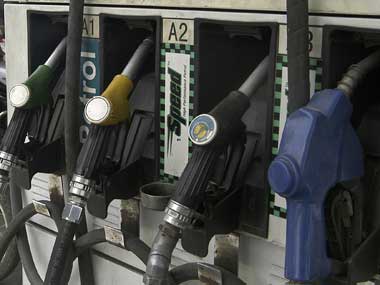New York: Prices for Brent crude oil rose on Wedesday to their highest level since April 2011 as fears mounted about supply disruptions from Iran, which has indicated it might halt shipments of oil to Europe.
Harangued by international sanctions over its nuclear programme, including a planned oil embargo by Europe, Iran warned six European buyers on Wednesday that it might strike first by immediately cutting them off from Iranian oil.
Iran’s official Islamic Republic News Agency reported that the ambassadors of Italy, Spain, France, the Netherlands, Greece and Portugal were summoned on Wednesday and told that Iran had no problem replacing customers; an implied threat that Iran would carry out plans to cut European countries off immediately to preempt sanctions set to go into effect in July.
[caption id=“attachment_200528” align=“alignright” width=“380” caption=“International crude oil prices are at their highest level since April 2011. Reuters”]  [/caption]
Officials said an earlier report by Press TV, Iran’s state-financed satellite broadcaster, that Iran had already banned oil exports to the six countries in retaliation for sanctions was inaccurate. Still, oil prices rocketed as the global markets were on edge.
Brent crude which is the benchmark for prices in Europe spiked more than 1.8 percent on Wednesday to $119.53 per barrel before retreating somewhat by late morning. It ended the day up 0.9 percent at $118.41 a barrel.
The price of oil has been steadily rising over the past several weeks as investors fret about America and Europe imposing sanctions to restrict Iran’s ability to sell oil.
India caught between a rock and a hard place
India and China, which are the biggest buyers of Iranian crude, have refused to fall in line with the US-led sanctions but there is intense pressure on India to cut its dependence on Iranian oil. India relies on Iran for about 12 percent of its oil imports or 3,50,000-4,00,000 barrels per day (bpd) and is Iran’s second-biggest oil client after China.
Impact Shorts
More ShortsAlthough India has rejected US pressure to join a ban of oil imports from Iran and made it as plain as daylight that it will continue to trade with Tehran the “sticky car bomb” attack in Delhi on Israeli targets can change everything. Delhi is turning out to be Iran’s last best friend, but everything could turn on the evidence that emerges in the car bomb terror case.
“If there is an Iran link to the Israeli embassy car bomb attack in Delhi we suspect it will be hard for India go back to business as usual with Iran,” an analyst at Strategic Energy & Economic Research, told Firstpost.
In 2011, rising oil prices and a falling rupee spelt double trouble for the Indian economy, which depends on imports for 70 percent of its fuel needs.
Connecting the dots
Meanwhile, developments in the investigation of a botched bombing in Bangkok raised fears among some security analysts that a series of suspected assassination attempts involving Israel and Iran could spread to other parts of the world. There have been three incidents in two days, in New Delhi, Tbilisi and Bangkok.
According to Thailand’s police chief Priewphan Damaphong, the Iranians arrested after the blasts on a Bangkok street aimed to attack Israeli diplomats. Significantly, he said the devices used were similar to bombs targeting Israelis in India and Georgia this week.
“The type of explosive device is similar to the incident in India,” Priewphan told reporters in Bangkok. The men “were not targeting a place.”
The incidents in India, Georgia and Thailand have stoked huge tensions and belligerent Israeli leaders haven’t ruled out a military strike.


)

)
)
)
)
)
)
)
)



